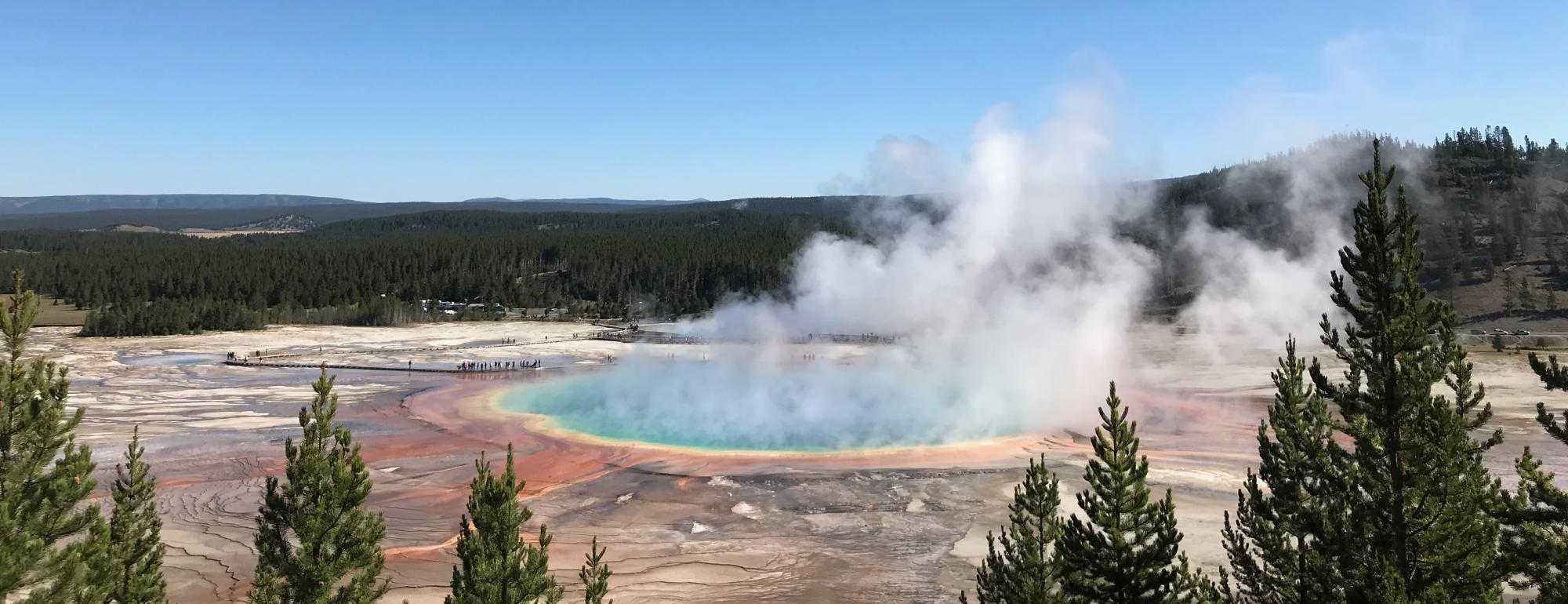News Archive 2013-2014
-
From KXTV-TV News 10: Quake predictor can help you plan for the next 'big one'. Interview with John Rundle, co-founder of OpenHazards.com - a website that estimates the probability of a quake of a given size in your area and the damage it might cause to your home.
-
Elsevier's journal Palaeogeography, Palaeoclimatology, Palaeoecology has put together a special virtual issue of the topmost downloaded and cited articles in palaeoclimatology over the past few years. 2 of the 10 articles come out of Isabel Montanez's lab (Eros et al 2012 & Horton et al. 2012). This virtual issue is available to everyone through November 12, 2014.
-
From KCRA TV: John Rundle discusses history, science behind Napa quake
-
"Ancient Earth, Alien Earths: What Earth's History Can Teach Us About Planets Orbiting Other Stars" - What do we know about the ancient Earth and how can that guide our search for habitable planets orbiting other stars? Dawn Sumner will be participating in a panel discussion featuring leading scientists in the fields of early Earth and habitability. Co-sponsored by NASA, NSF and the Smithsonian Institution. Broadcast on NASA TV on Wednesday, August 20 at 3:30 PDT. Watch online.
-
"Study reveals California meteorite's rough and tumble journey." Qing-zhu Yin is part of an international group of researchers who studied the Novato meteorite.
-
"Super fracking" - article from Physics Today. Don Turcotte, Eldridge Moores and John Rundle discuss the technical and environmental issues involved with super fracking.
-
Professor Howard Spero has been elected as a 2014 American Geophysical Union Fellow. This honor is given to individual AGU members who have made exceptional scientific contributions and attained acknowledged eminence in the fields of Earth and space sciences.
-
From the Sacramento Bee: "Viewpoints: Putting some myths about California's drought to rest." Jeff Mount is a co-author.
-
John Rundle is a guest on Lou Dobbs Tonight. "Oklahoma now most seismically active state in the U.S.?"
-
"Curiosity finds earthly similarities on Mars mission" - UC Newsroom.
-
Professor Ken Verosub and graduates of the International Masters Program on Risk and Emergency Management of the Institute for Superior Studies of the University of Pavia, Italy. Ken teaches Earth Sciences and Natural Disasters in the program in September.
-
Ryosuke Motani was interviewed by Chaohu Daily while doing fieldwork in Chaohu, Anhui Province, China.
-
Eric Cowgill and Dawn Sumner have been elected as Fellows of the Geological Society of America, in recognition of their contributions to the field, in mentoring, and to society.
-
Friday, April 25 at 7:30 pm: The Chamber Music Society of Sacramento and the UC Davis Earth and Planetary Sciences department present "Earth Week Celebration Concert" featuring Aaron Copland's Appalachian Spring and Gustav Mahler's "Song of the Earth".
-
"Mass Grave of 'Prodigal Sons' in California Poses Prehistoric Mystery" - Using stable isotope signatures in biological tissues, s research helps provide answers at this archeological site.
-
Graduate student Tyler Mackey is featured in, "Life on the Ice." Antarctica New Zealand's media programme profiled people working on the ice to highlight the reality of life on the world's southernmost continent.
-
Howie Spero has been chosen as the Faculty Research Lecturer for 2014. The Faculty Research Lecture Award is the highest honor the Davis Division of the Academic Senate accords its members.
-
Kari Cooper will be discussing her recent research on NPR/PRI Science Friday, February 21. Check your local listings for broadcast time.
-
From Nature: "Rapid remobilization of magmatic crystals kept in cold storage," lead author Kari Cooper. Results show that the magma reservoir beneath Mount Hood spends <~10% (and likely < 1%) of its time in an eruptible state. UC Davis press release with video
-
From BBC Nature: "Ancient reptile's birth fossilised" A rare fossil has revealed how marine reptiles evolved to give birth to live young. Ryosuke Motani undertook the study. Read the findings in the journal PLoS ONe
-
From Outlet: "How Bad is the California Drought?" Jeffrey Mount, geology professor emeritus at UC Davis and the founding director of the Center for Watershed Sciences, says climate models point to an increasing frequency of warm and dry winters in California.
-
From Science: Mars Science Laboratory team results from the first thorough analysis of a bedrock sample by the rover Curiosity. Dawn Sumner is a co-author on several featured articles.
-
From KQED radio - Forum with Michael Krasny: "Should Governor Brown Declare a Statewide Drought?" Guests include Jeff Mount.
-
The 2013 UC Davis Earth and Planetary Sciences Department Newsletter is now available online.
-
Phenomenal faculty: Professor Geerat Vermeij is featured in the One World, One UC Davis campaign. Learn more about one of our outstanding faculty.
-
Inspirational mentor: Dawn Sumner and Marisol Juarez Rivera are featured in the new One World, One UC Davis campaign. Read more about their story and find their banner on campus.
-
Dawn Sumner, who is a co-investigator for NASA's Mars Science Laboratory team, talks about the significance of finding methane on Mars and some recent Curiosity discoveries. From Phys.org: "NASA rover inspects pebbly rocks at Martian waypoint". From Capital Public Radio: Mars Curiosity Update
-
"Rover's first sample of Martian soil comes up wet" - Dawn Sumner discusses the recent findings from the Mars' Curiosity Mission.
-
"New tool pinpoints oil reserves" - A tool to precisely pinpoint where petroleum and gas reserves have accumulated has been created by an international team of scientists. UC Davis geology professor Qing-zhu Yin is one of the study's co-authors.
-
The UC Davis Department of Geology is now the UC Davis Department of Earth and Planetary Sciences.

